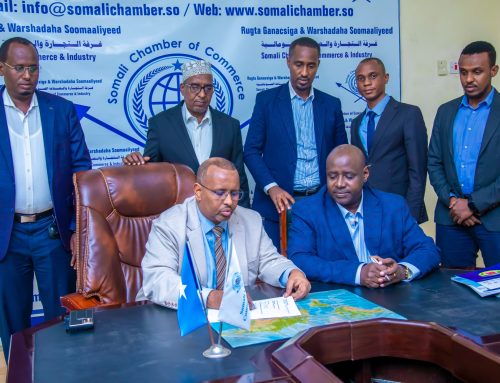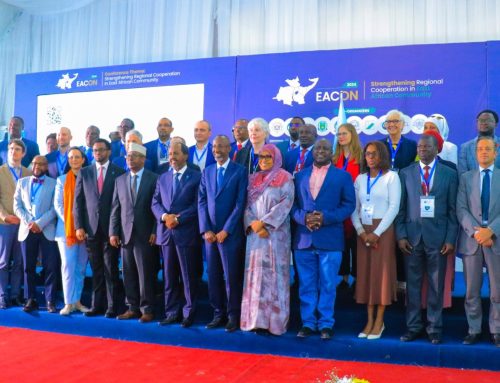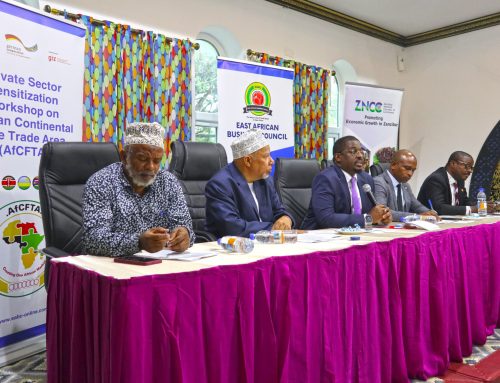Summary of the assignment:
| Nature of assignment | Short term |
| Location | Will vary depending on the respondents |
| Timeframe | 21 working days |
| Reporting | To Executive Director/CEO |
BACKGROUND TO THE EABC TRADEMARK EAST AFRICA PROJECT
The East African Business Council (EABC) is implementing the TMEA project titled Public‐Private Sector Dialogue (PPD) for Trade and Investment in Eastern Africa”. This regional project targets to mainstream advocacy throughout TMEA’s project clusters which are transport & logistics; customs & tax; standards & Sanitary Phyto Sanitary (SPS) Measures; African Free Trade Area (AfCFTA) & Tripartite Free Trade Area (TFTA) and Non-Tariff Barriers (NTBs). The programme’s core objective is to enhance private sector organisations’ (PSO) capacity to proactively and positively influence decision‐making, to accelerate dispute resolution, to sustain political buy‐in, to increase commitment and to reduce overall programme risks in TMEA’s project clusters. This will increase trade and investment in the EAC. The Regional Programme will contribute to core TMEA corporate results outlined below:
- Reduce transport (road, rail, and air) cost and time along transport corridors by 10% and increase efficiency in private sector logistics services provision
- Enhance Customs and other trade‐related agencies efficiency (25% reduction in time to process trade documentation) through integrated trade management systems and greater inter‐agency collaboration.
- Reduced tariffs, taxes, and levies by 5‐8% overall (including sub‐national) reduce exemption regimes, CET, and increase import/export tax incentives
- Enhanced efficiency of Bureaux of Standards, reduce related costs and time by 10%, reduce counterfeit and sub-standard goods by 20% through enhanced inter‐agency collaboration and improve private sector compliance.
- Resolve 30% of all reported NTBs along TMEA project clusters within a year.
- Catalyzing a 10% increase in exports annually, 93,000 direct jobs and $425m additional investment after seven years in targeted sectors in the EAC under the Compact and TLCs through increased investment incentives.
ABOUT EAST AFRICAN BUSINESS COUNCIL
The East African Business Council (EABC) is the umbrella body of the Private Sector in the East African Community (EAC). It brings together national private sector umbrella bodies, manufacturers, employers, bankers, insurance and transporters associations, chambers of commerce, corporates, and medium and small enterprises from the entire East African region.
EABC’s mandate is to represent and promote the interests of the EAC business community, provide value-added services that enhance trade and competitiveness, and to participate actively and positively influence legal and regulatory formulation to improve the business environment. EABC works with the major stakeholders such as the EAC Secretariat, Organs, Institutions and National Governments and provides input in policy discussion while advocating for the implementation of resolutions at the national level aimed at increasing intra-regional trade. For effective implementation of the Regional PPD programme, EABC was selected by TMEA as the lead implementing partner for the Private Sector Organizations.
RATIONALE AND OBJECTIVE OF THE ASSIGNMENT
One of the EABC-TMEA project outcomes is to improve adoption and harmonization of customs and domestic tax-related policies among the Partner States with a view of reducing tariffs, taxes, levies, exemption regimes and increasing import/export tax incentives. The Treaty for the Establishment of the East African Community provides that in the course of the establishment of a Customs Union shall among other things eliminate internal tariffs and other charges of equivalent effect. The EAC Treaty through Article 75(4) commits the Partner States not to impose any new duties and taxes or increase existing ones in respect of products traded within the Community.
In relation to the non-discriminatory tax regime, under Article 75(6) of the EAC Treaty, the EAC Partner States committed to refrain from enacting legislation or applying administrative measures that directly or indirectly discriminate against the same or like products of other Partner States. Article 15 on National Treatment of the Protocol on the Establishment of the East African Community Customs Union bar EAC Partner States from using discriminately administrative measures or internal taxes on imported products from EAC Partner States against similar domestic products. Article 15(1) of the Protocol states that the Partner States shall not (a) enact legislation or apply administrative measures which directly or indirectly discriminate against the same or like products of the Partner; or (b) impose on each other’s products any internal taxation of such a nature as to afford indirect protection to other products. Furthermore, the Protocol through article 15(2) reinforces non-discrimination on internal tax by stating that “No Partner States shall impose, directly or indirectly, on the products of the other Partner States any internal taxation of any kind in excess of that imposed, directly or indirectly, on similar domestic products. Article 15(3) on National Treatment of the Protocol ends by stating that Where products are exported to the territory of any Partner State, any repayment of internal taxation shall not exceed the internal taxation imposed on them, whether directly or indirectly.
Despite all the above-mentioned provisions, discriminatory taxes and other charges of equivalent effect are still a major concern for the business community in the EAC region. Although the EAC Partner States started to implement the Customs Union in 2005 and the transition period ended in 2010, some Partner States still impose discriminatory taxes in respect of products traded within the Community.
This contributed to the low volume of intra EAC trade and investment as they create an unlevel playing field between domestic products and same or like products of other Partner States.
In view of above, the EABC Secretariat under the EABC- TMEA Regional PPD Programme is commissioning a consultancy to undertake a study on discriminatory taxes in the EAC. This study will highlight an inventory of all discriminatory taxes, impact on intra-EAC trade and recommendations & advocacy roadmap for their elimination.
SCOPE OF THE WORK AND DUTIES
The consultant should undertake the following:
- Develop a comprehensive list of existing discriminatory taxes on products in EAC Partner States;
- The impact of discriminatory taxes on intra-EAC trade;
- Determine and recommend appropriate options and modalities for the elimination of identified discriminatory taxes;
- Identify legal bases from EAC integration framework for the elimination of existing discriminatory taxes
- Organize internal validation workshop;
- Present report of the discriminatory taxes in EAC Partner States;
- Develop EABC Policy brief which EABC will use to advocate for the elimination of existing discriminatory taxes
The key deliverables include:
- which among other things will contain the detailed work plan for carrying out the scope of work, proposed methodology and research design survey instruments.
- of Inventory of Discriminatory Taxes in EAC region
- that includes, inventory of discriminator taxes on products in EAC, their impact on intra-EAC trade and recommendations.
- Containing a summary of the findings identified on discriminatory taxes and how to eliminate them
QUALIFICATIONS AND EXPERIENCE
A suitable candidate should hold the following qualifications and key competencies:
- Academic qualifications: A Master degree or postgraduate qualification in any of the following fields, Economics, Taxation, Business Administration or any other relevant field is required.
- Work Experience: Demonstrate experience in undertaking consultancy of similar work at regional/national level
- Communication and Networking: Must be able to identify key stakeholders; seek their views, correctly interpret their messages and respond appropriately
- Knowledge of EAC Integration, international trade, policy design and technical framework Regional Trade Arrangements and conversant with social, economic and geo-politics of EAC.
- Languages: Fluency in oral and written English is required as it is the main EAC working language. Good working knowledge of French and Kiswahili will be an advantage.
- Additional Skills: Excellent computer skills (Microsoft Office, Word, PowerPoint, and Excel, Email, analytical tools/software for data analysis, experience in working with internet searches, online databases, and data retrieval) are required.
- Nationality: The position is only open to Nationals of any of the EAC Partner States, Burundi, Kenya, Rwanda, Tanzania, Uganda and South Sudan.
THE APPLICATION PROCESS
The technical and financial proposal must be submitted separately addressed to;
The Executive Director / CEO
East African Business Council (EABC)
Ninth Floor, Mafao House, Old Moshi Road P. O. Box 2617 Arusha, Tanzania.
Email: director@eabc-online.com with a copy to procurement@eabc-online.com
clearly marked “Consultancy to Undertake Study on Discriminatory Taxes in EAC Partner States”.
The technical proposal should also contain a current curriculum vitae, work plan and methodology.
The financial proposal should be protected with a password.
Applications close on (30th November 2020) at (5.00 p.m.)
EABC is an equal opportunity employer thus recruitment is on merit and with no regard to one’s age, colour, gender, marital status, disability or impairment, race or creed.
Canvassing shall lead to automatic disqualification.
Environmental aspects will be taken into consideration.
END




